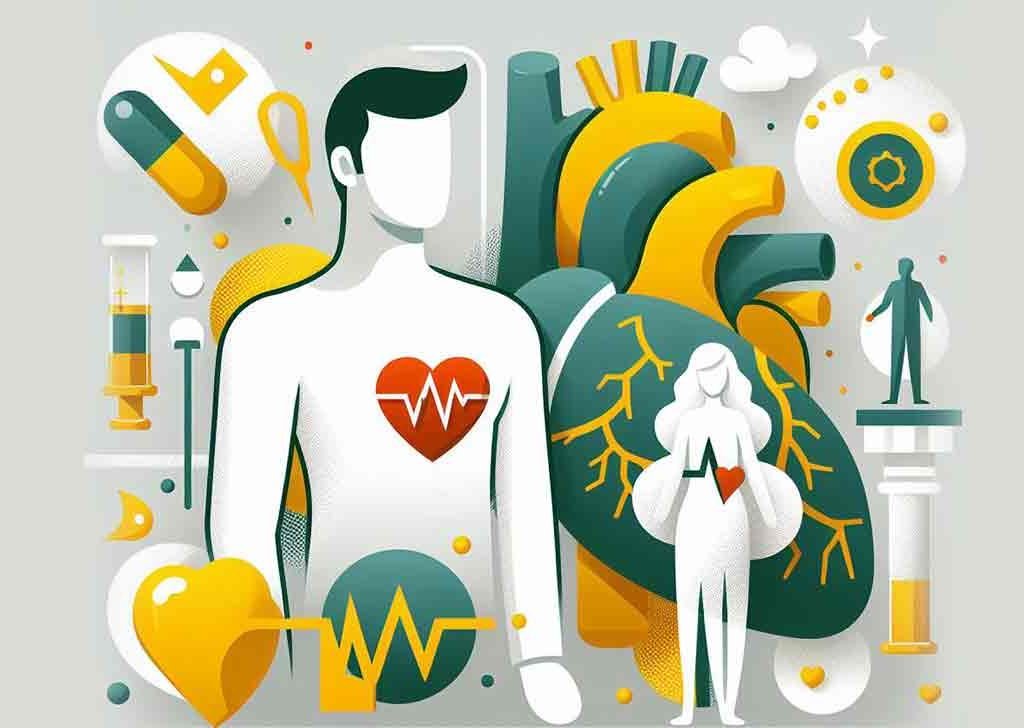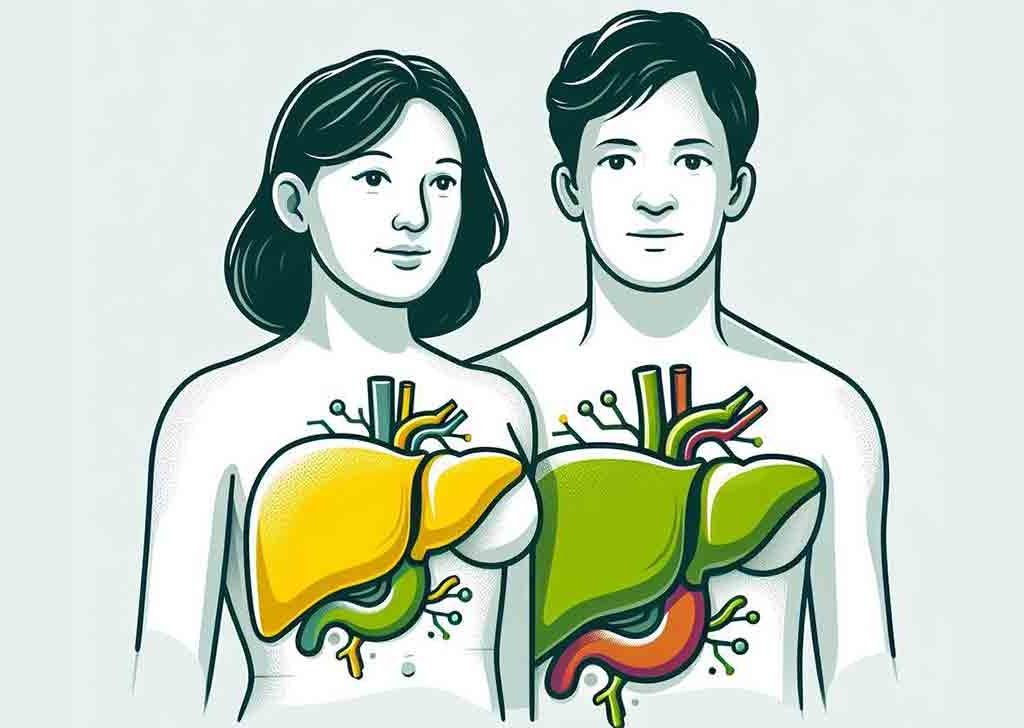Eggs, meat, and dairy can impact cholesterol levels, but their effects vary based on individual health and dietary context. Moderation and quality of these foods matter significantly for managing cholesterol.
High cholesterol can lead to serious health issues, including heart disease. Many people wonder if common foods like eggs, meat, and dairy contribute to this problem. Eggs contain cholesterol, but recent studies show they may not significantly raise blood cholesterol levels for most people.
Lean meats and low-fat dairy options can provide essential nutrients without excessive saturated fats. Understanding how these foods fit into a balanced diet is crucial. Making informed choices can help maintain healthy cholesterol levels while still enjoying a diverse diet. This article explores the relationship between these foods and cholesterol levels, helping you make better dietary decisions.

The Cholesterol Debate
The debate about cholesterol continues to spark interest. Many people wonder if foods like eggs, meat, and dairy harm cholesterol levels. Understanding the facts is crucial. Misunderstandings can lead to poor dietary choices.
Myths Vs. Facts
Several myths surround cholesterol. Let’s break them down:
- Myth 1: All cholesterol is bad for health.
- Fact 1: The body needs cholesterol to function properly.
- Myth 2: Eating cholesterol-rich foods raises blood cholesterol.
- Fact 2: The liver produces cholesterol. Diet has less impact.
- Myth 3: Only saturated fats raise cholesterol.
- Fact 3: Trans fats and refined sugars also contribute.
Cholesterol Function In The Body
Cholesterol plays several vital roles:
- Cell Membranes: Cholesterol helps maintain cell structure.
- Hormone Production: It aids in producing hormones.
- Vitamin D Synthesis: Cholesterol helps create Vitamin D.
- Bile Acid Formation: It assists in digesting fats.
Understanding these functions shows why cholesterol isn’t entirely bad. The body relies on it for several essential processes.
| Type of Cholesterol | Function |
|---|---|
| LDL (Low-Density Lipoprotein) | Transports cholesterol to cells. Often labeled as “bad” cholesterol. |
| HDL (High-Density Lipoprotein) | Helps remove cholesterol from the bloodstream. Known as “good” cholesterol. |
Eggs: Culprit Or Scapegoat?
Eggs often face scrutiny in discussions about high cholesterol. Many people wonder if they should avoid eggs entirely. Understanding their role is crucial in managing cholesterol levels.
Nutritional Profile
Eggs are packed with nutrients. They provide essential vitamins and minerals. Here’s a quick overview of their nutritional benefits:
| Nutrient | Amount per Large Egg |
|---|---|
| Calories | 70 |
| Protein | 6 grams |
| Fat | 5 grams |
| Cholesterol | 186 mg |
| Vitamin D | 10% of Daily Value |
Eggs contain high-quality protein. They also offer healthy fats. The cholesterol content is notable. Many worry that this affects heart health.
Research On Eggs And Cholesterol
Studies present mixed results about eggs and cholesterol levels. Some findings suggest:
- Eating eggs may not raise cholesterol for everyone.
- For most people, moderate egg consumption is safe.
- Dietary cholesterol does not impact blood cholesterol as once thought.
Experts emphasize the importance of overall diet. A diet rich in fruits, vegetables, and whole grains helps. This can balance out the effects of eggs.
Always consult with healthcare professionals. They can provide personalized advice based on individual health needs.
Meat’s Role In Cholesterol Levels
Meat can affect cholesterol levels in different ways. Understanding the type of meat consumed is crucial. Some meats are healthier than others. The impact on heart health also varies.
Red Vs. White Meat
Red meat includes beef, pork, and lamb. White meat mainly consists of poultry like chicken and turkey.
| Type of Meat | Cholesterol Content | Health Benefits |
|---|---|---|
| Red Meat | Higher in cholesterol and saturated fats. | Contains iron and protein. |
| White Meat | Lower in cholesterol and saturated fats. | Rich in lean protein and less harmful fats. |
Choose white meat over red meat. This can help lower cholesterol levels. Opt for lean cuts of meat. They are healthier options.
Processed Meats And Risks
Processed meats include bacon, sausages, and deli meats. These are often high in sodium and preservatives.
- High in saturated fats
- Linked to heart disease
- Increase cholesterol levels
Limit intake of processed meats. Choose fresh, unprocessed options. This can reduce health risks associated with high cholesterol.
Dairy Products: Full-fat Or Low-fat?
Choosing between full-fat and low-fat dairy can be tricky. Both options have different effects on health. Understanding these differences helps you make better choices for cholesterol management.
Types Of Dairy Fats
Dairy products contain different types of fats. Here are the main types:
- Full-Fat Dairy: Includes whole milk, cream, and cheese.
- Low-Fat Dairy: Includes skim milk, low-fat yogurt, and reduced-fat cheese.
- Non-Fat Dairy: Contains no fat at all. Examples are non-fat yogurt and milk.
Impact On Blood Cholesterol
The type of dairy fat can affect blood cholesterol levels. Here’s how:
| Dairy Type | Effect on Cholesterol |
|---|---|
| Full-Fat Dairy | May raise LDL cholesterol. |
| Low-Fat Dairy | Can help lower LDL cholesterol. |
| Non-Fat Dairy | Usually has minimal impact. |
Full-fat dairy contains saturated fats. These fats can increase LDL cholesterol. This type is often labeled as “bad” cholesterol. Low-fat and non-fat options provide less saturated fat. They can support better heart health.
Always check nutrition labels. Look for added sugars and preservatives. Choose options with fewer additives for better health.
Balancing Diet And Cholesterol
Managing cholesterol levels is important for heart health. Diet plays a key role. Eggs, meat, and dairy can fit into a balanced diet. Understanding how to balance these foods helps maintain healthy cholesterol levels.
Healthy Eating Patterns
Healthy eating patterns focus on whole foods. Include plenty of fruits and vegetables. Whole grains and lean proteins are also beneficial.
Consider these healthy eating patterns:
- Mediterranean Diet: Rich in fruits, vegetables, nuts, and fish.
- DASH Diet: Focuses on fruits, vegetables, whole grains, and low-fat dairy.
- Plant-Based Diet: Emphasizes plant foods while limiting animal products.
Choosing a diet rich in fiber can lower cholesterol. Whole grains and legumes are excellent sources.
Portion Control
Portion control is vital for managing cholesterol. Eating too much of any food can lead to issues. Balance is the key.
Follow these tips for portion control:
- Use smaller plates to help control serving sizes.
- Read food labels to understand serving sizes.
- Limit high-fat meats and dairy products.
- Incorporate more plant-based proteins.
Keep track of your daily intake. Make sure to include a variety of foods. This ensures a balanced and nutritious diet.
| Food Type | Recommended Serving Size | Cholesterol Impact |
|---|---|---|
| Eggs | 1 per day | Moderate impact |
| Red Meat | 3 oz, 2-3 times a week | High impact |
| Dairy (low-fat) | 1 cup daily | Low impact |
Monitoring portions helps keep cholesterol levels in check. Enjoy a variety of foods while maintaining balance.
Understanding Saturated And Trans Fats
Saturated and trans fats are often linked to high cholesterol levels. These fats can raise LDL cholesterol, the “bad” cholesterol. Understanding their sources and effects is crucial for maintaining heart health.
Sources Of Unhealthy Fats
Many foods contain unhealthy fats. Here are some common sources:
- Red Meat: Beef, lamb, and pork.
- Processed Meats: Sausages, hot dogs, and bacon.
- Dairy Products: Whole milk, cheese, and butter.
- Fried Foods: French fries and fried chicken.
- Baked Goods: Cookies, cakes, and pastries.
Effects On Health
High intake of saturated and trans fats can lead to serious health issues:
| Effect | Description |
|---|---|
| Increased Cholesterol | Raises LDL cholesterol levels in the blood. |
| Heart Disease | Increases risk of heart attacks and strokes. |
| Weight Gain | High-calorie foods can lead to obesity. |
Choosing healthier fats is essential. Look for unsaturated fats in foods like:
- Olive oil
- Avocados
- Nuts and seeds
- Fatty fish
Making these changes can significantly impact your cholesterol levels.
The Role Of Fiber In Cholesterol Management
Fiber plays a crucial role in managing cholesterol levels. It helps lower bad cholesterol (LDL) while increasing good cholesterol (HDL). Eating enough fiber can support heart health. Understanding the types of fiber is essential for effective cholesterol management.
Soluble Vs. Insoluble Fiber
Fiber comes in two main types: soluble and insoluble. Each type has different benefits for cholesterol management.
| Type of Fiber | Benefits |
|---|---|
| Soluble Fiber |
|
| Insoluble Fiber |
|
Fiber-rich Foods
Incorporating fiber-rich foods into your diet helps manage cholesterol. Here are some excellent sources:
- Oats – Great for breakfast; high in soluble fiber.
- Beans – Versatile and rich in fiber; add to salads or soups.
- Fruits – Apples, pears, and berries are excellent choices.
- Vegetables – Broccoli, carrots, and Brussels sprouts are fiber-packed.
- Whole Grains – Brown rice, quinoa, and whole wheat bread.
Eating a variety of these foods helps maintain healthy cholesterol levels. Aim for at least 25-30 grams of fiber daily for optimal heart health.
Interpreting Cholesterol Test Results
Understanding cholesterol test results helps you make better health choices. These tests measure different types of cholesterol and fats in your blood. Each type plays a unique role in your health. Knowing what these numbers mean is essential.
Ldl Vs. Hdl
LDL stands for Low-Density Lipoprotein. It is often called “bad” cholesterol. High levels can lead to heart disease. Here are key facts about LDL:
- Optimal level: below 100 mg/dL
- Borderline high: 130-159 mg/dL
- High: 160 mg/dL and above
HDL means High-Density Lipoprotein. It is known as “good” cholesterol. Higher levels can protect against heart disease. Key facts about HDL include:
- Optimal level: above 60 mg/dL
- Low: below 40 mg/dL (men)
- Low: below 50 mg/dL (women)
Triglycerides Significance
Triglycerides are another type of fat in the blood. They store energy and are measured during cholesterol tests. High triglyceride levels can increase heart disease risk. Here are the ranges:
| Triglyceride Level | Category |
|---|---|
| Less than 150 mg/dL | Normal |
| 150-199 mg/dL | Borderline High |
| 200-499 mg/dL | High |
| 500 mg/dL and above | Very High |
Monitoring LDL, HDL, and triglycerides is vital for heart health. Regular check-ups help you stay informed. Adjusting your diet can positively impact these levels.
Genetics And Cholesterol: The Inherited Factor
Cholesterol levels often run in families. Genetics plays a big role in how our bodies process cholesterol. Some people may have high cholesterol due to inherited genes. Understanding genetic factors can help manage health better.
Familial Hypercholesterolemia
Familial Hypercholesterolemia (FH) is a common genetic disorder. It leads to very high cholesterol levels from a young age. People with FH have a higher risk of heart disease.
- Inherited from one or both parents.
- High LDL cholesterol (bad cholesterol).
- Possible symptoms include early heart disease.
Testing for FH is important. Early detection can lead to better management. Treatments often include:
- Healthy diet changes.
- Regular exercise.
- Medications to lower cholesterol.
Genetic Testing
Genetic testing can identify those at risk for high cholesterol. Testing can help determine if someone has FH. Results can guide treatment plans.
| Test Type | Description |
|---|---|
| LDL Receptor Mutation Test | Checks for mutations in LDL receptor genes. |
| PCSK9 Gene Test | Identifies mutations affecting cholesterol levels. |
| APOB Gene Test | Tests for mutations impacting lipoprotein metabolism. |
Genetic testing can help family members too. If one person has FH, relatives may also be at risk. Early testing can prevent serious health issues.
Lifestyle Adjustments For Better Cholesterol
Making small changes in your daily routine can significantly improve your cholesterol levels. Focus on exercise, stress management, and healthy eating. Each adjustment plays a crucial role in heart health. Here are some effective strategies to consider.
Exercise Benefits
Regular exercise offers numerous benefits for cholesterol management. It helps in the following ways:
- Increases HDL cholesterol: This is the “good” cholesterol.
- Reduces LDL cholesterol: This is the “bad” cholesterol.
- Aids weight loss: Losing weight can lower cholesterol levels.
- Improves heart health: A healthy heart supports better cholesterol.
Here’s a simple table showing recommended exercises:
| Exercise Type | Duration | Frequency |
|---|---|---|
| Walking | 30 minutes | 5 days a week |
| Cycling | 30 minutes | 3-5 days a week |
| Swimming | 30 minutes | 3 days a week |
Stress And Cholesterol
High stress can lead to elevated cholesterol levels. Managing stress is essential for heart health. Here are some effective stress management techniques:
- Meditation: Spend a few minutes daily in silence.
- Deep breathing: Practice breathing exercises to calm your mind.
- Yoga: Join a class or follow online sessions.
- Nature walks: Spend time outdoors to relax.
Incorporating these techniques can help lower stress and improve overall cholesterol levels.
Dietary Approaches To Stop Hypertension (dash) Diet
The DASH Diet focuses on reducing high blood pressure. It emphasizes whole foods, fruits, and vegetables. This diet can also help manage cholesterol levels. It limits salt, sugar, and unhealthy fats. Following DASH can lead to better heart health.
Dash Diet Basics
The DASH Diet consists of simple guidelines. Here are the core components:
- Fruits and Vegetables: Aim for 4-5 servings each daily.
- Whole Grains: Include 6-8 servings per day.
- Lean Proteins: Choose 2 or fewer servings of meat, poultry, or fish.
- Dairy: Opt for 2-3 servings of low-fat or fat-free options.
- Nuts and Seeds: Snack on 4-5 servings weekly.
- Fats and Oils: Limit to 2-3 servings, focusing on healthy fats.
Here’s a simple table showing recommended servings:
| Food Group | Recommended Servings |
|---|---|
| Fruits | 4-5 servings |
| Vegetables | 4-5 servings |
| Whole Grains | 6-8 servings |
| Lean Proteins | 2 or fewer servings |
| Dairy | 2-3 servings |
| Nuts and Seeds | 4-5 servings weekly |
| Fats and Oils | 2-3 servings |
Success Stories
Many people have transformed their health with the DASH Diet. Here are a few inspiring examples:
- Maria: Lowered her blood pressure by 20 points in 3 months.
- John: Lost 15 pounds while enjoying delicious foods.
- Susan: Improved her cholesterol levels significantly.
These stories show that the DASH Diet works. It can help anyone aiming for better health.
Statins And Cholesterol: Medication Insights
Statins are popular medications for managing cholesterol levels. They help many people lower their LDL cholesterol, known as “bad” cholesterol. Understanding how statins work can aid in making informed decisions about heart health.
How Statins Work
Statins block a substance your body needs to make cholesterol. They reduce the amount of cholesterol in your blood. Lower cholesterol levels can decrease the risk of heart disease and stroke.
- Inhibit HMG-CoA reductase, an enzyme in the liver.
- Increase the liver’s ability to remove LDL cholesterol from the blood.
- May have additional benefits, like reducing inflammation.
Pros And Cons
Like any medication, statins come with benefits and drawbacks. Understanding both sides is essential for effective treatment.
| Pros | Cons |
|---|---|
| Lower LDL cholesterol levels | Possible side effects like muscle pain |
| Reduced risk of heart attack | May interact with other medications |
| Easy to take as a daily pill | Long-term use may require monitoring |
Discussing these aspects with a healthcare provider is vital. They can help determine if statins are right for you. Always weigh the pros and cons before starting any medication.
Heart-healthy Alternatives To Meat And Dairy
Many people worry about high cholesterol. Finding heart-healthy alternatives can help. Replacing meat and dairy with plant-based options is an excellent choice.
Plant-based Proteins
Plant-based proteins are great for heart health. They contain less saturated fat than meat. Here are some popular options:
- Legumes: Beans, lentils, and peas are rich in protein.
- Nuts and Seeds: Almonds, chia seeds, and walnuts offer healthy fats.
- Tofu and Tempeh: These soy products are versatile and nutritious.
- Quinoa: A complete protein that is gluten-free.
These proteins help lower cholesterol levels. They provide essential nutrients without the harmful fats found in meat.
Non-dairy Milk Options
Non-dairy milk is a tasty alternative to regular milk. These options are often lower in cholesterol. Here are some popular choices:
| Type of Milk | Calories (per cup) | Protein (grams) | Cholesterol (mg) |
|---|---|---|---|
| Almond Milk | 30 | 1 | 0 |
| Soy Milk | 80 | 7 | 0 |
| Coconut Milk | 45 | 0 | 0 |
| Oat Milk | 60 | 2 | 0 |
These non-dairy milks are rich in nutrients. They can be used in cooking or enjoyed in drinks. Choose options fortified with calcium and vitamin D.
Cooking For Lower Cholesterol
Cooking for lower cholesterol can be simple and delicious. Choosing the right cooking methods and ingredients is essential. Focus on healthy options to maintain a balanced diet. This helps manage cholesterol levels effectively.
Healthy Cooking Techniques
Use these techniques to prepare heart-healthy meals:
- Grilling: This method reduces the need for added fats.
- Baking: Use minimal oils for a healthier option.
- Steaming: Retain nutrients without extra fat.
- Sautéing: Use a small amount of olive oil or broth.
- Slow Cooking: Enhance flavors without added fats.
These methods keep food tasty while lowering cholesterol.
Recipe Ideas
Try these easy recipes for lower cholesterol:
- Grilled Chicken Salad:
- Use skinless chicken breast.
- Mix with fresh greens and vegetables.
- Dress with lemon juice or balsamic vinegar.
- Baked Salmon:
- Season salmon with herbs and lemon.
- Bake at 400°F for 15 minutes.
- Serve with steamed broccoli.
- Vegetable Stir-Fry:
- Use colorful veggies like bell peppers and carrots.
- Sauté in a small amount of olive oil.
- Serve over brown rice or quinoa.
These recipes are not only healthy but also delicious. Enjoy cooking while keeping your cholesterol in check.
The Mediterranean Diet And Cholesterol
The Mediterranean diet is rich in healthy fats. It focuses on whole foods. This diet can help manage cholesterol levels effectively.
Core Principles
The Mediterranean diet emphasizes:
- Fruits and Vegetables: Aim for a variety of colors.
- Whole Grains: Choose whole wheat, brown rice, and quinoa.
- Healthy Fats: Use olive oil as the main fat source.
- Lean Proteins: Include fish, chicken, and legumes.
- Nuts and Seeds: Great sources of healthy fats.
These core principles work together to support heart health. They help lower bad cholesterol levels.
Olive Oil And Heart Health
Olive oil is a key component of the Mediterranean diet. It is packed with monounsaturated fats.
This type of fat can help reduce bad cholesterol (LDL). It also raises good cholesterol (HDL).
Health benefits of olive oil:
| Benefit | Description |
|---|---|
| Heart Health | Lowers risk of heart disease. |
| Anti-Inflammatory | Reduces inflammation in the body. |
| Rich in Antioxidants | Protects cells from damage. |
Use olive oil for cooking and dressings. Replace butter or margarine with olive oil. This simple swap can improve heart health.

Credit: www.healthline.com
The Impact Of Alcohol On Cholesterol
Alcohol can influence cholesterol levels in various ways. Moderate consumption may have some benefits. However, excessive intake can lead to health risks. Understanding these effects is crucial for managing cholesterol.
Moderate Consumption
Studies show that moderate alcohol consumption can help raise HDL cholesterol. HDL is known as “good” cholesterol. Higher HDL levels can protect against heart disease.
Moderation is key. For most adults, moderate means:
- Up to one drink per day for women.
- Up to two drinks per day for men.
Stick to these limits to enjoy potential benefits without risks.
Types Of Alcoholic Beverages
Different types of alcoholic beverages can affect cholesterol levels differently. Here’s a quick overview:
| Type of Beverage | Potential Effects on Cholesterol |
|---|---|
| Red Wine | May increase HDL cholesterol. |
| White Wine | Can also raise HDL, but less than red. |
| Beer | May have moderate effects on cholesterol. |
| Spirits (like vodka or whiskey) | Limited benefits; moderation is vital. |
Choose beverages wisely. Focus on moderation to maintain a healthy cholesterol level.
Reading Food Labels For Cholesterol Management
Reading food labels helps manage cholesterol. It guides choices between healthy and unhealthy options. Eggs, meat, and dairy can impact cholesterol levels. Understanding labels is key for making informed decisions.
Identifying Hidden Fats
Hidden fats can sneak into your diet. They raise cholesterol levels without you noticing. Check labels for these terms:
- Saturated Fat: Found in animal products.
- Trans Fat: Often in processed foods.
- Hydrogenated Oils: Used for preservation.
Choose products with:
- No trans fats.
- Low saturated fats.
Understanding Nutritional Information
Nutritional information is crucial for cholesterol management. Focus on these key components:
| Nutrient | Recommended Daily Value |
|---|---|
| Cholesterol | Less than 300 mg |
| Saturated Fat | Less than 20 g |
| Trans Fat | 0 g |
Look for low numbers in these areas. This helps keep cholesterol in check. Always read the serving size. It affects total nutrient intake.
Cholesterol Myths Debunked
Many people worry about cholesterol in their diet. Eggs, meat, and dairy often get blamed. Let’s explore common myths and reveal the truths about cholesterol.
Common Misconceptions
- Myth 1: Eating eggs raises cholesterol levels.
- Myth 2: All saturated fats are harmful.
- Myth 3: Red meat is the main cause of high cholesterol.
- Myth 4: Dairy products should be completely avoided.
Truths Uncovered
Truth 1: Eggs can raise cholesterol but not in everyone. For many, they improve health markers.
Truth 2: Not all saturated fats are equal. Some can be beneficial.
Truth 3: Red meat isn’t the sole culprit. Overall diet matters more.
Truth 4: Dairy can be part of a heart-healthy diet. Choose low-fat options.
| Food Type | Cholesterol Impact |
|---|---|
| Eggs | May raise cholesterol for some |
| Red Meat | Not the only factor affecting cholesterol |
| Dairy | Can be part of a healthy diet |
Expert Opinions On Cholesterol Management
Understanding how to manage cholesterol is crucial for heart health. Experts provide varied insights on eggs, meat, and dairy. Their opinions help clarify what to include in your diet.
Cardiologists’ Recommendations
Cardiologists focus on reducing heart disease risks. Many suggest limiting saturated fats found in certain foods.
- Eggs: Moderation is key. One egg per day is often acceptable.
- Meat: Lean meats are preferred. Choose poultry and fish over red meats.
- Dairy: Opt for low-fat or fat-free options. Whole milk products can raise cholesterol.
Regular check-ups help track cholesterol levels. Cardiologists emphasize a balanced diet rich in fruits and vegetables.
Nutritionists’ Advice
Nutritionists advocate for a heart-healthy diet. They recommend foods that lower cholesterol.
| Food Type | Benefits |
|---|---|
| Oats | High in soluble fiber. |
| Fish | Rich in omega-3 fatty acids. |
| Nuts | Good source of healthy fats. |
| Fruits and Vegetables | Loaded with antioxidants and fiber. |
Nutritionists also stress the importance of portion control. Mindful eating habits lead to better cholesterol management.

Credit: www.facebook.com
Moving Forward: A Heart-healthy Lifestyle
Adopting a heart-healthy lifestyle is vital for managing high cholesterol. This journey involves understanding your body and making smart choices. Focus on a balanced diet and regular activity. Remember, small changes can lead to significant improvements.
Setting Realistic Goals
Setting goals helps you stay motivated. Choose goals that are achievable and specific. Consider the following:
- Reduce saturated fat intake.
- Increase fruit and vegetable consumption.
- Exercise at least 150 minutes weekly.
Break larger goals into smaller steps. For example:
- Replace red meat with fish twice a week.
- Try a new vegetable each week.
- Walk for 10 minutes daily, then increase.
Celebrate each small success. This keeps you motivated and on track.
Monitoring Progress
Tracking your progress helps you see improvements. Here are some effective methods:
- Keep a food diary.
- Log your physical activity.
- Regularly check cholesterol levels.
Consider using a table to track your progress:
| Date | Cholesterol Level | Exercise Duration | Fruits/Vegetables Eaten |
|---|---|---|---|
| Week 1 | 210 mg/dL | 30 min | 5 servings |
| Week 2 | 205 mg/dL | 45 min | 7 servings |
Review your records weekly. Adjust your goals as needed. Stay committed to your heart-healthy lifestyle.
Credit: www.heartuk.org.uk
Frequently Asked Questions
Are Eggs Bad For High Cholesterol?
Eggs can raise cholesterol levels, but they also provide essential nutrients. Moderation is key for a balanced diet.
Is Red Meat Harmful For Cholesterol?
Red meat may increase cholesterol levels due to its saturated fat content. Lean cuts and moderation can help manage risks.
Do Dairy Products Affect Cholesterol Levels?
Full-fat dairy products may elevate cholesterol levels. Opting for low-fat or plant-based alternatives can be healthier choices.
Can I Eat Chicken With High Cholesterol?
Chicken is generally lower in saturated fat than red meat. Skinless, lean cuts are better for managing cholesterol.
Are Plant-based Diets Better For Cholesterol?
Plant-based diets are often lower in saturated fats and cholesterol, making them heart-healthy options for many people.
How Often Can I Eat Eggs?
Limit egg consumption to a few times a week. Balance with other protein sources for optimal cholesterol management.
Is Fish Good For Cholesterol?
Fatty fish, rich in omega-3 fatty acids, can help lower cholesterol levels. Incorporating fish into your diet is beneficial.
Should I Avoid Butter With High Cholesterol?
Butter contains saturated fats, which can raise cholesterol. Consider using healthier alternatives like olive oil or avocado.
Can Processed Meats Raise Cholesterol?
Processed meats are often high in saturated fats and sodium, which can negatively impact cholesterol levels. Limit their intake.
What Lifestyle Changes Help Lower Cholesterol?
Regular exercise, a balanced diet, and avoiding trans fats can significantly help in managing cholesterol levels effectively.
Conclusion
Understanding the impact of eggs, meat, and dairy on cholesterol is crucial for making informed dietary choices. While these foods can contribute to cholesterol levels, moderation and balance are key. Opting for lean meats, low-fat dairy, and incorporating plant-based options may support heart health.
Always consult a healthcare professional for personalized advice.



